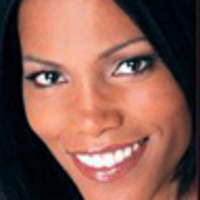This Saturday, A&E Lifetime Network will recognize an important era in our nation’s history with an account of the friendship between my mother, Dr. Betty Shabazz, and Coretta Scott-King. History referred to these extraordinary women, along with their friend Myrlie Evers-Williams, as “The Three Widows of the Movement.’’ However, even a cursory two-hour examination of their lives reveals their roles expanded far beyond that of surviving wives of famous husbands. Each of these exceptional women turned tragedy into triumph. Each one continued the legacy of her martyred husband. Each sacrificed personal freedom to become a warrior for social justice in her own right.

Betty, Coretta, and Myrlie treasured each other. They served as confidantes and friends to one another as they each adapted to life without their husbands and to rearing children who had been tragically deprived of their fathers.
Because my father directly challenged the government, neither he nor my mother have received the recognition they deserved over the years. So much could be learned from both. My sincerest hope is that the film, Betty and Coretta, will encourage all to learn more. And that it will empower a new generation of women to forge meaningful bonds of friendship and support.
My mother witnessed the martyrdom of her husband, Haj Malik Shabazz—Malcolm X—on Sunday Feb. 21, 1965, at the Audubon Ballroom in New York City. My older sisters, Attallah and Qubilah, and I were seated with our mother front row, stage right. We were present to hear my father address his new federation, the Organization of Afro American Unity (OAAU). I have no clear recollection of that horrific day because I wasn’t quite 3 years old. I know for many, it is a day that is vividly remembered. I’m told that our mother shielded my sisters and me with her body from the gunfire before attempting to save her husband with mouth-to-mouth resuscitation. Needless to say, her life was forever changed.
Betty Shabazz was the wife of a man who confronted a government that was historically unjust. Exactly one week prior to his assassination, we had been terrorized by a firebomb thrown into the nursery where my sisters and I slept. Long after my father’s assassination, surveillance of the family by the Nation of Islam (NOI), Federal Bureau of Investigation (FBI) and Central Intelligence Agency (CIA) continued. On the day my father was slain, Betty was left alone—widowed, homeless (because of the firebomb), and penniless (because the millions of dollars my father raised for the NOI went to the NOI). In a fateful moment, she became a single parent of four babies—and was pregnant with twins.
Despite the significant tragedy, my mother refused to live her life as a victim. She possessed faith in God, self-respect, and a perspective that did not permit her to say, “No, I cannot do this.” She persevered to raise her six daughters, to safeguard the legacy of her husband, and to somehow earn a Masters of Arts degree in Public Health Education and a Ph.D. in Education Administration. She would often say to me, “Ilyasah, just as one must drink water, one must give back,” and that she did. She founded the Young Mothers Educational Development (YMED) program, which provided support for stigmatized pregnant unwed teens to complete their education. Dr. Shabazz joined the faculty of Medgar Evers College (MEC) as a professor. She taught health sciences, advanced to Director of Public Relations, and was eventually appointed as the college’s Cultural Attaché.
Dr. Shabazz was selected to participate on United States delegations with Presidents Ford, Carter, and Clinton; and she also served her country as a delegate to the Women's International Conference in Bejing, China.
My mother accomplished a great deal in her life but what I will always remember most is her unwavering determination to protect her husband’s legacy from distortion. My father was a brilliant human rights strategist who was devoted to the cause of peace, equality, and freedom for all. Unfortunately, however, the legacy of Malcolm X was too often subject to unlawful, untruthful, and unfair reporting. In order to counter these effects, my mother worked with Pathfinder Press to ensure publication of reliable volumes that would accurately recount his life, words, and works. She established the Malcolm X Medical scholarship at Columbia University. She was relentless in her efforts to have my father honored with a United States postage stamp. The Malcolm X Black Heritage stamp was issued in 1999, two years after my mother passed away. Dr. Betty Shabazz worked with Mayor Edward Koch to rename Lenox Avenue in Harlem, to Malcolm X Boulevard. She also formed a coalition of community, political, and educational leaders to establish the Malcolm X Memorial Center at the Audubon Ballroom. She was determined to transform the place of fatal tragedy into one that would triumphantly honor her husband’s legacy.
When my mother passed away in 1997, President Clinton and many other leaders called with condolences and the United States flag was lowered to half-mast.
My mother fulfilled her husband’s expectation that she would ensure that his life and works are accurately recorded in history. “When you teach a man, you teach a community; when you teach a woman, you raise a nation.”






